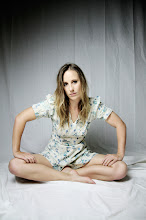
'In Arabic we have a saying,' says the rotund oldest son of our hosts for the evening. ' “As much as you like us, this much you should eat in our home”', and we laugh at the quaint translation, which sounds odd coming from such a proficient English speaker, but this is not the first time we have been warned about the quantity of food that our generous hosts have planned to lay before us.
This morning our host rang to rearrange our meal from lunch to dinner, owing to car trouble, and I now begin to wonder if it was in fact a cunning ploy to give his wife extra time to prepare for our coming. The aroma wafting down the corridor is amazing, a combination of the smell of succulent meat covered in spice and the steam escaping from the saffron rice. We can't even detect the smoke from our hosts' pre-dinner cigarettes, the smell from the kitchen is so powerful. In the phone call this morning we were warned not to eat lunch, and I am starting to regret that I did not take this advice.
Around the table we are 7, our hosts, their two children, their eldest's fiancee, and us - the two men here for Persian conversation practice, and me, here for the food. I can't wait to try all these dishes, some of which I have attempted to make with no frame of reference, others have been on my 'must try' list for a while.
There are three huge round dishes of rice, one speckled yellow from aromatic saffron and sprinkled with bright red barberries that have been fried in sugar to eliminate their bitter taste. Another plate is green from the dill that has been tossed through. Between these two dishes are the Tah- diks from both, the crusty outer layer of the rice, the ultimate Persian delicacy. One is a vibrant green from the dill, the other comes in rounds of crispy potato with soft steamed rice hanging on underneath. The third rice dish has been left intact, a perfect circle uniformly bright saffron yellow, that has been cooked with chicken and yoghurt between layers of rice. Its crust is impressive, giving it the appearance of a huge yellow cake.
There is more chicken, two large trays of roasted pieces swimming in their own juices, covered in deep fried potato batons. And the third chicken dish is the one I am most eager to try, the walnut and pomegranate Fesenjun, my own Persian party piece. I'm wondering how mine will compare to the authentic version.
It is perhaps a little odd to be in the home of Arab Jordanians feasting on Persian food from a nearby country with whom political relations are so frosty. But this is the nature of our stay in Amman, full of contradictions and unlikely situations. Our host isn't even the boys' teacher, just a friend of friends who eagerly offered to give them some conversation practise, and cultural immersion. He and his family lived in Iran before diplomatic relations between the two countries became hostile.
During the meal, taking a break from the constant flow of food being heaped on my plate, I ask the lady of the house where her table cloth is from. I am hoping she will say it was a local purchase, and that I'll be able to rush out and buy one for my mother, who would love its intricate patterns. She replies that it was from Iran, and asks me if I like it. I hesitate, knowing that in Arabic culture the practise of giving compliments is complicated by convention. I have no choice but to honestly tell her that I think the tablecloth is beautiful, and she immediately jumps up and says, 'I have others! I will give you,' and before I can protest she has rushed off, returning with an armful of beautiful coloured fabrics.
'Which one you like?' She asks, and I protest that I cannot take one. But, she insists, and I choose a circular tassled table cloth. I'm already picturing it on my outdoor terrace table, with my replications of her traditional Persian dishes. Maybe I'll find one similar in the markets of Damascus or Istanbul to buy for my mother. This one has already become too sentimental to consider giving away.
'In Arabic we have a saying: “Today, we have. Tomorrow, we don't know”. That is to say, live in the moment'. And she smiles.
I now know two Arabic proverbs, and I like both of them. Feed your friends, be generous and live in the moment.
I had planned to leave with a full stomach and a few cooking tips, and have walked away with a new table cloth and the perfect philosophy for life. What more could you ask for?



No comments:
Post a Comment